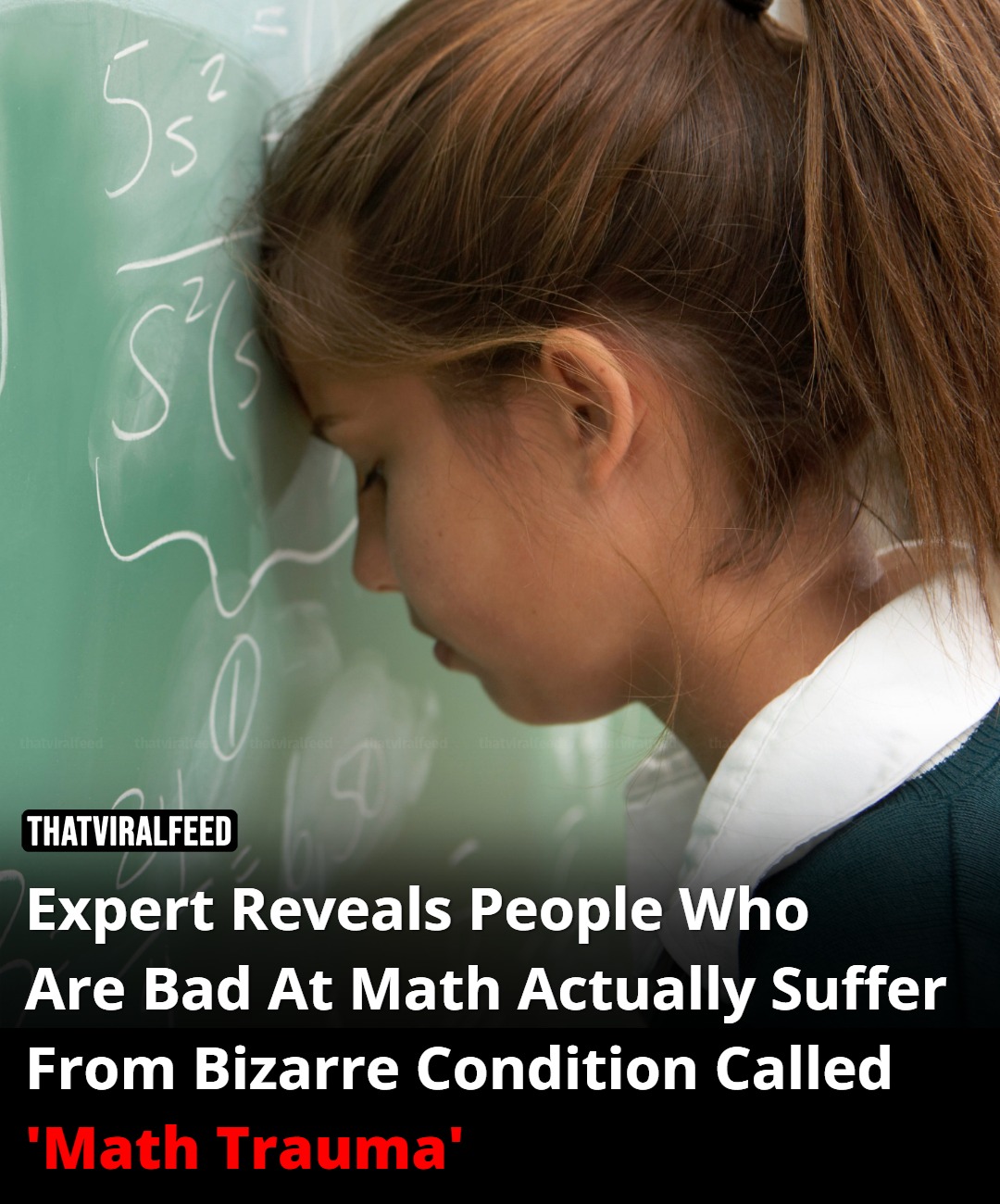For many, math evokes flashbacks to stressful lessons, confusing concepts, and maybe even a few humiliating moments.
But now, there’s a new theory from a math professor that could explain why these feelings linger well into adulthood.
It turns out, your dislike for math might not just be about numbers.
According to this expert, it could stem from something deeper, known as ‘math trauma’.
In a recent article, Vaughn shed light on the phenomenon she calls ‘math trauma’ and shared why more individuals might be dealing with it than you’d expect.

What Is ‘Math Trauma’?
Vaughn begins her explanation with a relatable statement: “Whenever I inform people of my occupation, they are animated with a look of joy or misery as they remember their feelings for math—and it’s usually the latter.”
She continues, explaining that these experiences are more common than people might think: “They often regale me with stories of negative classroom experiences or encounters, usually involving a teacher embarrassing or ridiculing them in class.”
According to Vaughn, these negative encounters during math lessons often leave lasting impressions, shaping how people feel about math throughout their lives.
Vaughn elaborates further, saying: “That math trauma is then triggered whenever they encounter a math problem or math conversation for the duration of their academic years. Even outside of school, they refuse to recognize daily habits such as balancing a checkbook, counting money, or estimating prices as practicing math.”

For example, it highlighted how students with different needs might not always get the support required to excel in complex subjects like math.

